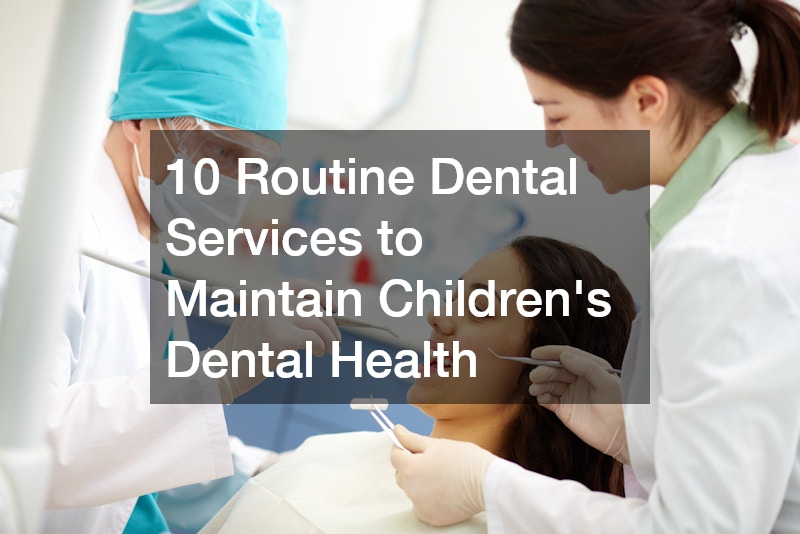Maintaining optimal dental health is crucial for overall well-being; it extends beyond simply having a bright smile. The importance of routine dental services cannot be overstated. It is these regular dental check-ups, cleanings, and preventive treatments that form the backbone of oral health for people of all ages. Dental issues, if left unchecked, can lead to serious health issues, including cardiovascular problems, infections, and even complications related to diabetes. From children to seniors, everyone can benefit from regular visits to a dentist, whether it’s a local pediatric dentist or a specialist, depending on their needs.
A consistent dental care routine includes not just the personal habits of brushing and flossing, but also engaging with professional healthcare services. A partnership with a competent dental professional helps in identifying issues early, which is integral to preventing significant dental problems down the road. Regular engagement with dental professionals can ensure that teeth stay healthy, gum disease is prevented, and oral health education is optimized for the best results.
This comprehensive guide will explore the various facets of routine dental services available at different life stages. We will delve into topics such as professional teeth cleanings, fluoride treatments, and the application of dental sealants, among others. By the end of this article, you’ll have a detailed understanding of the necessary dental services required for maintaining excellent oral health and how each of these services supports overall health and well-being.
Regular Dental Check-Ups
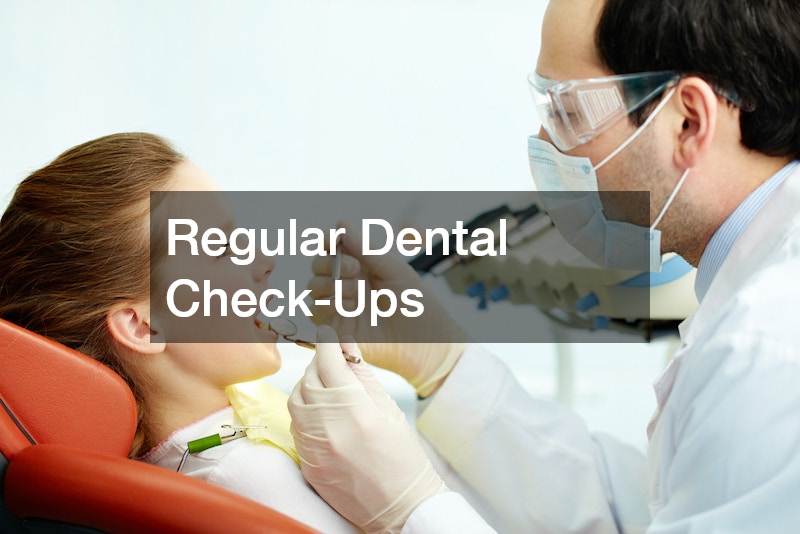
Regular dental check-ups are a cornerstone of routine dental services and play a significant role in maintaining oral health. Visiting a local pediatric dentist regularly is essential, especially for children, as it helps in monitoring the development of their teeth and ensuring that any potential issues are addressed promptly. These visits can reveal problems which might remain invisible to the untrained eye.
During these check-ups, dentists perform various routine dental services like inspecting teeth, gums, and other parts of the oral cavity. They often use special tools and techniques to provide a thorough examination and cleaning. Early detection of cavities, gum disease, and even oral cancer can significantly improve treatment outcomes and save from future expensive treatments.
Routine dental check-ups typically include further educational elements as well. Dentists often provide guidance on maintaining oral hygiene, such as proper brushing and flossing techniques, to help patients prevent future issues. This preventative approach, grounded in education and routine assessments, supports long-term dental health.
Professional Teeth Cleaning
Professional teeth cleaning is a critical component of routine dental services, often performed during regular check-ups. While at-home techniques like brushing and flossing are important, they aren’t always enough to remove tartar buildup, which requires special tools used by dental professionals. Cosmetic dentistry benefits from clean teeth as it creates a healthy foundation for aesthetic treatments.
During a dental cleaning, a hygienist will carefully clean each tooth, removing any plaque and tartar that have accumulated over time. This process not only helps keep your teeth looking their best but also helps prevent tooth decay and gum disease. This type of cleaning is vital for preventing periodontal disease, an inflammation that can affect the bone structure supporting the teeth.
In addition to making your teeth feel clean and smooth, a thorough cleaning can also reduce bad breath, or halitosis. Cleaning is more comprehensive than what one can achieve with a toothbrush and floss at home. Hence, integrating professional cleaning into your routine dental services is crucial, providing immediate benefits and preventing serious dental health problems.
Fluoride Treatments
Fluoride treatments are another integral part of routine dental services, particularly beneficial for children whose teeth are still developing. These treatments are often administered in a pediatric dentist office where the goal is to strengthen teeth and build resistance to decay. Fluoride is a naturally occurring mineral known for its ability to strengthen enamel, the outer layer of the tooth.
By applying fluoride to the teeth, dental professionals can create a stronger barrier that can resist the acid caused by bacteria, sugary foods, and beverages. For children, fluoride treatments are crucial as their teeth develop the required resistance to cavities. Pediatric dentists specifically counsel parents on the benefits and frequency of these treatments according to the unique needs of their children’s oral health.
Fluoride treatments are generally quick and painless and can significantly reduce the risk of cavities, which is a substantial benefit in lifelong dental care. The inclusion of fluoride is a proactive measure in routine dental services, emphasizing the preventative nature of regular dental care. It helps in maintaining healthy teeth throughout a person’s life.
Dental Sealants Application
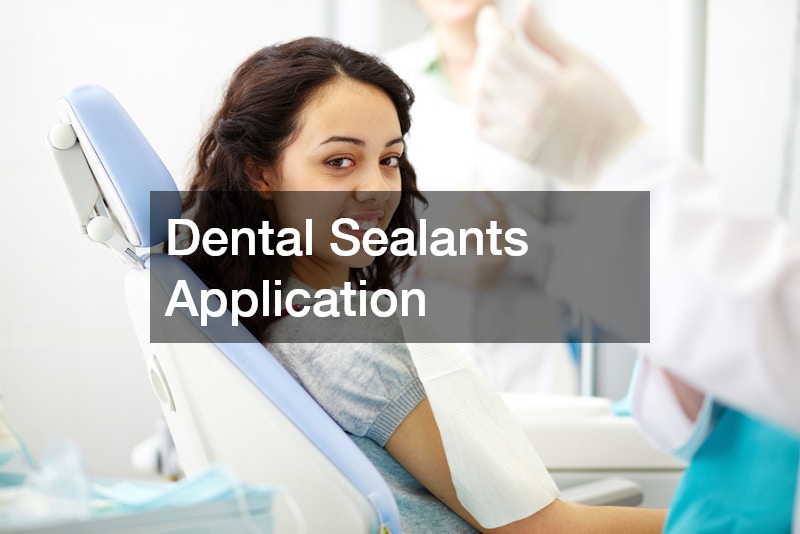
The application of dental sealants is another preventative service that falls under routine dental services. Sealants are thin, plastic coatings painted on the chewing surfaces of teeth, usually the back molars, where tooth decay occurs most frequently. The sealant acts as a barrier, protecting enamel from plaque and acids.
Sealants are especially beneficial for children; they protect the grooves and depressions in the teeth where toothbrush bristles cannot reach. This protective layer can last many years, making it an excellent long-term safeguard against cavities. Dental cleaning processes complement sealant applications as they ensure the surface of the tooth is free of any plaque before application.
While typically associated with pediatric patients, adults who have not developed decay in their molars can also benefit from sealants. This demonstrates how dental sealants can be part of routine dental services to support patients of all ages. Securing this service as part of your dental care routine can contribute significantly to oral health maintenance.
X-Rays to Monitor Tooth Development
X-rays play a crucial role in routine dental services by providing a clear picture of tooth development and identifying potential issues not visible during a regular exam. They are instrumental in diagnosing problems like impacted teeth or jaw abnormalities. Affordable dental implants and other corrective measures often rely on x-ray analysis for precise placement and alignment.
With advanced technology, dental x-rays are quicker, safer, and more informative than ever before. These x-rays help in identifying bone loss, cavities hidden between teeth, and growth or development issues in children. A pediatric dentist might use x-rays to see how well a child’s teeth are coming in, ensuring timely interventions if problems are detected.
Being a non-invasive diagnostic tool, x-rays can complement a dentist’s visual examination, offering a fuller understanding of dental health. Implemented as part of regular routine dental services, x-rays ensure that any potential issues are caught early, supporting successful treatments and interventions.
Cavity Fillings
Unfortunately, cavities remain a common issue for people of all ages, but routine dental services like cavity fillings can help address these problems promptly. A dentist will remove decayed tooth portions and fill the cavity with materials like composite resin, which is both durable and aesthetically pleasing. This process restores the tooth’s structure and function.
Timely fillings can prevent the need for more extensive procedures like root canals or crowns, which are invasive and more costly. This proactive approach aligns with the goals of routine dental services—preventing minor issues from becoming significant problems. Treating cavities early is beneficial not just for oral health but can have positive impacts on a patient’s overall well-being.
Beyond functional restoration, modern filling materials can match the natural color of your teeth, seamlessly blending for an aesthetically pleasing result. This aspect of restorative dentistry bridges basic dental services with cosmetic dentistry, emphasizing both health and beauty in dental care.
Gum Disease Evaluation and Treatment
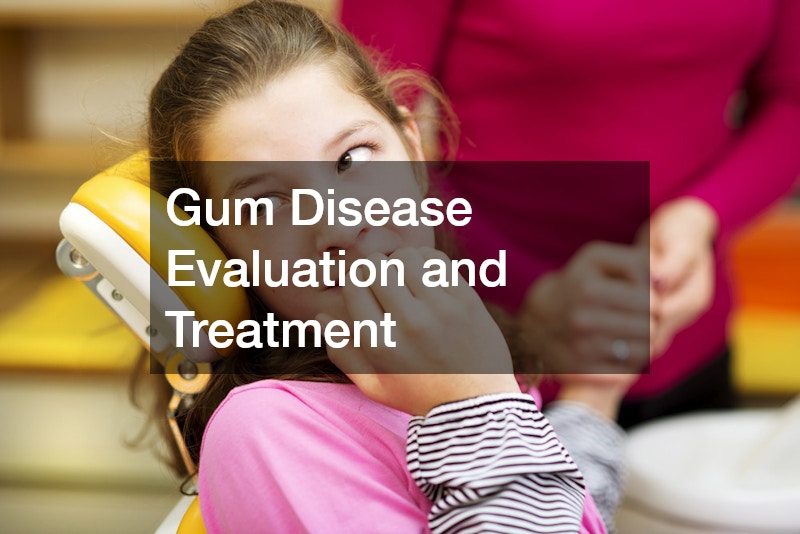
Evaluating and treating gum disease is integral to routine dental services. The health of your gums is crucial to your overall dental health, playing a key role in keeping teeth in place. Early signs of gum disease include bleeding gums, persistent bad breath, and receding gums. Detecting these signs early through routine dental visits can prevent progression.
Gum disease, if left untreated, can lead to more serious conditions like periodontitis, which can cause tooth loss and has been linked with conditions such as heart disease and diabetes. A dentist will evaluate your gums during regular check-ups and may recommend treatments like scaling and root planing to clean infected areas below the gum line.
Treatment plans for gum disease are tailored to an individual’s specific condition and response. Regular monitoring and maintenance through routine dental services help control the disease and improve outcomes significantly, highlighting the importance of consistent dental care.
Orthodontic Evaluations
Orthodontic evaluations are a key component of comprehensive routine dental services, especially crucial during developmental years but also for adults considering orthodontic options. An orthodontist specializes in diagnosing, preventing, and treating dental and facial irregularities. These evaluations can identify the need for alignment corrections, influencing jaw and tooth positioning.
Early evaluations can dictate whether early intervention is needed for developing jaw and teeth alignment. Alignments can reduce the risk of tooth decay and gum disease by making the teeth easier to clean, and improvements in bite can alleviate stress on jaw joints. Orthodontic care goes beyond just enhancing a smile; it ensures long-term oral health benefits.
Advancements in orthodontics, such as clearer braces and aligners, have made treatments less invasive and more aesthetically pleasing. Through routine dental services, orthodontic evaluations can help guide patients toward the best choices for correcting misalignments, significantly contributing to both oral health and quality of life.
Nutritional Counseling for Oral Health
Nutritional counseling as part of routine dental services plays a significant role in maintaining oral health. Understanding the relationship between diet and oral hygiene can prevent future dental issues. Foods high in sugars and acids can contribute to tooth decay and gum disease, which is why a childrens dentist often provides guidance on a balanced diet for healthy teeth.
Dietary recommendations can help in achieving a balanced diet that supports stronger teeth and gums. This guidance often includes educating patients on limiting sugar intake, increasing consumption of calcium-rich foods, and understanding the role of vitamins and minerals in oral health. Effective nutritional guidance can be an excellent preventive strategy against dental diseases.
Through routine dental services, nutritional counseling empowers patients by providing the knowledge to make dietary choices that enhance not just oral health but overall health. Understanding how nutrition affects your oral health is valuable in preventing cavities and gum disease, making it an integral component of comprehensive dental care.
Oral Hygiene Education and Instructions
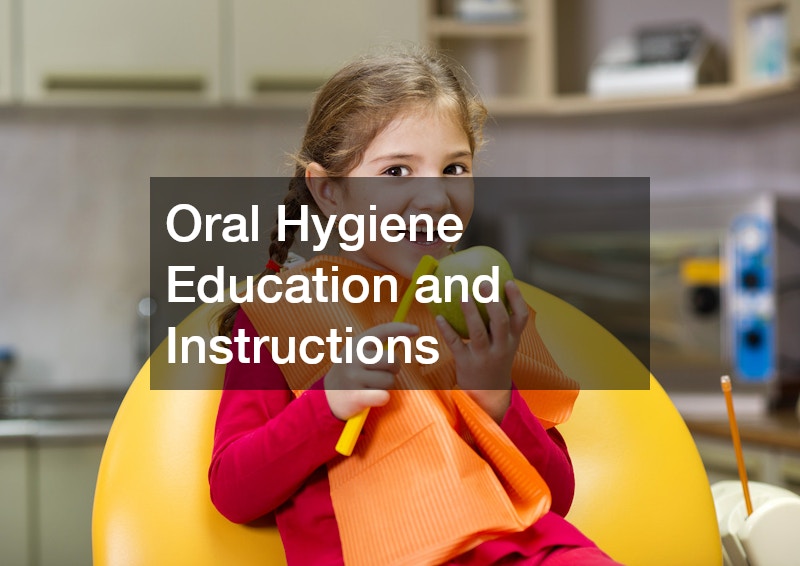
Comprehensive oral hygiene education is an important aspect of routine dental services, aiming to equip patients with the knowledge needed to maintain good dental health at home. Proper brushing and flossing techniques are among the first lessons taught, with a focus on regularity and effectiveness. Ongoing education can significantly reduce the incidence of cavities and gum disease.
Dentists and hygienists provide personalized advice based on individual dental health needs, adjusting techniques and frequency as needed. This personalized approach ensures that each patient understands how to best care for their teeth and gums, taking into account factors such as braces or dental implants. Routine visits to a dental care provider include education as a preventative measure for various potential dental issues.
Instruction often extends beyond just mechanical cleaning; it includes recommendations on suitable dental products like specific types of toothpaste and mouthwashes. This holistic approach ensures that all aspects of oral hygiene are addressed, forming a comprehensive routine dental service that supports broader health initiatives and ensures lasting dental health.
Routine dental services encompass a wide range of practices and procedures vital to maintaining optimal dental health. Each service, from professional teeth cleaning to nutritional counseling, plays a key role in preventing dental diseases and supporting overall health and well-being. By engaging regularly with qualified dental professionals, you are working proactively towards a healthier future.
These services not only help in the early detection of potential dental issues but also provide a foundation for good oral hygiene practices. By choosing to invest in such preventive measures, you minimize the risk of requiring more extensive and costly treatments later on. Regular check-ups, fluoride treatments, dental sealants, cavity fillings, gum disease evaluations, and orthodontic evaluations cater to the varied needs of patients, ensuring comprehensive care for all.
The incorporation of nutritional counseling and oral hygiene education further enhances the benefits of routine dental services by enabling patients to make informed decisions that positively influence their dental health. Ensuring that you are equipped with the knowledge and tools needed to maintain dental health will undoubtedly support you in leading a healthy lifestyle, emphasizing the integral role of routine dental care in overall health.
